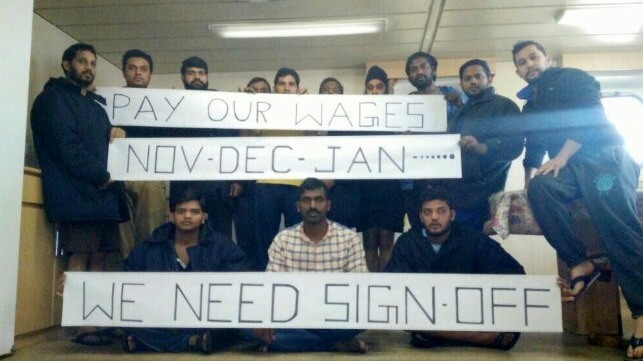Years After MLC's Passage, Seafarer Abandonment Persists at High Rate

Just ahead of the Day of the Seafarer, the ESG tracking platform RightShip is calling attention to the startling number of active cases of vessel abandonment in ports around the world.
RightShip's records show that as of the end of May, there are fully 247 vessels abandoned at ports worldwide and over 3,600 seafarers awaiting repatriation. The largest group are from India, with 724 Indian seafarers stranded far from home. These are just the recorded cases, and the true numbers may even be higher.
RightShip has been building a log of abandonment cases for years, and its database covers about two decades of incidents. The data collected includes the vessel owner, manager, and any entities that were connected to the case but did not help address it. This information is used to analyze patterns, like crew nationality, vessel type, vessel age, location, and duration of the abandonment.
The average duration of an abandonment case is an astonishing seven months from the time the owner walks away to the time that the crew are repatriated. Full settlement can take much longer: Over the last 18 years, RightShip has identified 30 cases where the dispute took more than a decade to settle.
"The welfare of seafarers can no longer be ignored. When a ship is abandoned, if the crew leave the vessel it is far less likely that they will be paid, so they are forced to stay put, waiting, for months and sometimes years on end," said Steen Lund, the CEO of RightShip. "The uncertainty of these circumstances is incredibly stressful for both the crew and their families left at home."
Perhaps unsurprisingly, vessels at the end of their commercial lifespan - when ships have the highest maintenance costs and lowest resale value - are the most likely to be abandoned. The most common age of abandoned vessels is in the range of 26-30 years, according to RightShip. However, even nearly-new vessels are not exempt from the phenomenon.

that matters most
Get the latest maritime news delivered to your inbox daily.
Solving abandonment might look simple on paper. The Maritime Labor Convention (MLC) contains meaningful protections for seafarers, but less than two thirds of IMO member states have ratified it. RightShip suggests that a "lack of adequate and competent inspectorates" for MLC compliance in individual IMO member states also poses a challenge for enforcement.
"Though the majority of vessel owners and managers strive to do the right thing by their crews, there are those who will only act when the issue affects their bottom line. In the absence of rigorous international enforcement of seafarers’ rights, we help responsible organizations shine a spotlight on themselves so that best practice can be recognized and rewarded, and by extension those who abuse the rights of seafarers suffer competitively," said Steen.
